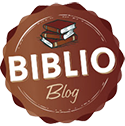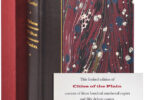
Image of Sylvia Plath
Sylvia Plath was an American poet, novelist and short story writer, who is best known for her partially autobiographical novel, The Bell Jar, and for her two collections The Colossus and Other Poems and Ariel. She became the first poet to win a Pulitzer Prize posthumously for The Collected Poems in 1982.
Sylvia was born in Massachusetts on October 27, 1932. She showed an artistic and literary talent even as a child; at eight years old, Plath managed to get her first publication; a poem in the children’s portion of the Boston Herald. That same year, her father Otto passed away. Plath later penned the poem Electra on Azalea Path after visiting her father’s grave in Winthrop, Massachusetts.
By the time Sylvia began attending Smith College in 1950, she had written over fifty short stories and had her works published in a wide variety of magazines. While a junior, Plath became the guest editor at Mademoiselle magazine and spent a month in New York City. Depression struck her while she was living in the big city, and she began to lose hold of her self confidence.
The depression was so strong that Plath went through her first suicide attempt by taking a large dose of sleeping pills and hiding under her house. She was found and treated, and then sent to a mental institution to recover. She received electroshock therapy while under the care of McLean Hospital. Much of this experience was used in her later novel, The Bell Jar.
Her stay at the hospital as well as her Smith College education was paid for by Olive Higgins Prouty, another Massachusetts poet and author who had also experienced emotional and nervous breakdowns. Plath’s recovery seemed to go well, and she graduated from Smith with honors in 1955, and won the Glascock Prize for her poem, Two Lovers and a Beachcomber by the Real Sea.
Plath and English poet Ted Hughes were married in June 1956 while she attended Newnham College in Cambridge, England. Sylvia and Ted returned to the United States and continued to work on their writing. It was around this time in 1958 that Sylvia made friends with W. S. Merwin and Anne Sexton.
The couple returned to the United Kingdom in 1959, a period which saw many important events unfolding in their lives. Their first child, Frieda, was born in April 1960, and in October of the same year, Plath’s first collection of poetry, The Colossus and Other Poems, was published. Plath suffered a miscarriage in early 1961, but by August, she finished the novel The Bell Jar. The couples second child, Nicholas, was born in January 1962.

First Edition of The Bell Jar by Victoria Lucas (Sylvia Plath) offered by The Last Word booksellers.
By June of 1962, the marriage was falling apart, and Sylvia had a car accident which she later admitted was another suicide attempt. The couple separated in September, and this sad turn of events gave Sylvia a burst of creative potential. Much of her best-known poetry was created during this time. By December, she and the children returned to London for the coldest winter in 100 years. The difficult season found Sylvia and her children often sick and without a telephone, and she soon relapsed into a severe depression.
In January 1963, The Bell Jar was released in the United Kingdom, published under the pen name of Victoria Lucas. This release did not lift Sylvia’s spirits, and she visited a doctor and close friend who prescribed her some antidepressants and tried to convince her to admit herself into a hospital. When Plath refused, he arranged for a live-in nurse to assist with Sylvia and her two small children.
The nurse arrived at the flat promptly at nine o’clock on the morning of 11 February 1963, but she could not get in, and no one responded to her knocking. One of the apartment workmen let her in, and together they found Plath dead of carbon monoxide poisoning. It appears that Plath had sealed her children’s rooms with damp towels and placed her head in the oven with the gas turned on in the early morning hours.
After her death, the rights to her works remained in her estranged husbands’ control. He ensured that her works continued to be published, and it is the poetry collection called Ariel, published in the United States in 1966, that sealed Plath’s reputation as a talented poet. Ariel also received much acclaim in the growing feminist movement with her sometime confident, sometime ferocious, and always emotionally-charged voice.
Her husband Ted Hughes edited The Collected Poems, published in 1981, which contained poems that Sylvia had written from 1956 until her death. This collection saw Plath receive the first posthumously-awarded Pulitzer Prize for poetry in 1982.
Her works and correspondences continue to be published. Letters Home: Correspondence 1950-1963, was collected, edited and published by Plath’s mother in 1975. Portions of her journals were published in 1982 (The Journals of Sylvia Plath) by her husband, who had sealed some of her journals until the fiftieth anniversary of Sylvia’s death on February 11, 2013. He released those journals to their children before his death in 1998. A lost sonnet, Ennui, was published in the online journal Blackbird after being found by a graduate student at Virginia Commonwealth University in 2006.







Great post. Can’t wait to read the next ones 🙂
i enjoy exactly how you receive your level throughout – great author!
This article was extremely interesting, especially since I was searching for thoughts on this subject last Thursday.
The picture of Plath is not correct–this is not Plath. This is a picture of Assia Wevill, Ted’s mistress who was part of the catalyst that decomposed their marriage.
Ay, Cat! You are correct…thank you so much for noticing our error and correcting us. I have removed the image of Assia Wevill and replaced it with an image of Sylvia Plath, after I double-checked and triple-checked my sources.
Thank you! It is nice to see that this web site is maintained. Looks much better. Although–Assia Wevill is another interesting person to learn about. I have found, during my research of Plath, that it is really helpful to learn about those in her life such as friends (i.e. Anne Sexton), competitors (i.e. Adrienne C. Rich) and even her reading interests (i.e. Robert Lowell, Yeats, etc.).